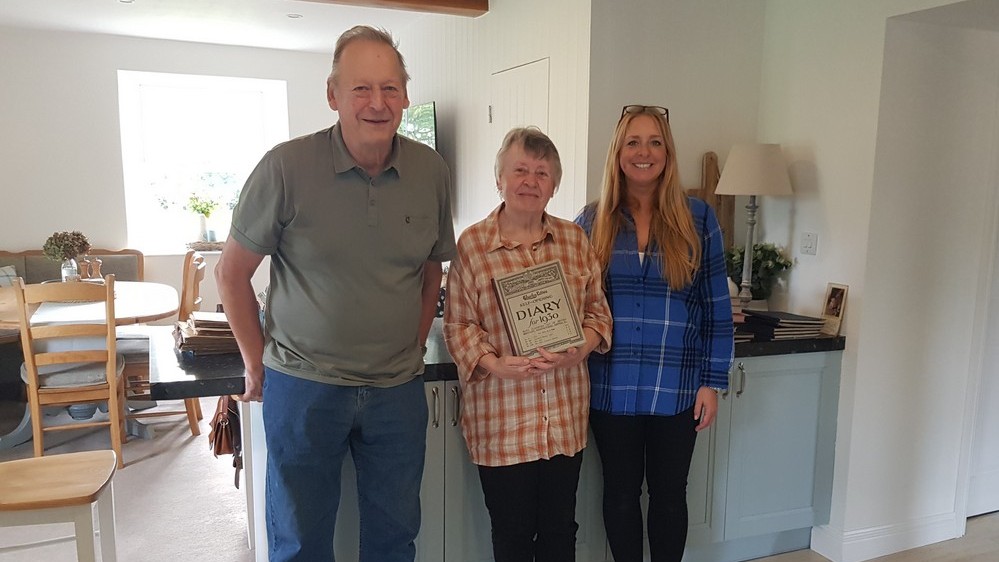

In December 2020 The Friends of Lydiard Park began an ambitious project to transcribe and digitise a series of meticulously kept diaries (1899-1940) belonging to Elliot Woolford of Hook Farm, Lydiard Tregoze. Thanks to the generosity of the Woolford family for sharing this treasure trove of local social history, and resident historian Frances Bevan for transcribing Elliot’s copperplate diary entries, many wonderful stories are coming to light. Many of these now feature in Tales of Lydiard on this website and in The Lydiard Archives.
In September this year the Friends of Lydiard Park received a second national funding award from Townsweb Archiving towards the digitisation programme and the Friends of Lydiard Park are committed to completing the project in 2024.
Frances Bevan says:
‘The latest volumes of the Woolford Diaries published on the Lydiard Archives include the years 1900, 1901 and 1902. The start of a new century sees life on Hook Farm continue much the same as usual, but before long Elliot has big challenges and changes with which to cope. His workload continues to increase but his labour force diminishes as his two brothers marry and move on.
During the summer of 1902 he writes:
Monday May 26, 1902 – Planted out upward of 4 thousand plants Sprouts & Cauliflowers had to water them.
Wednesday June 4, 1902 – Put 25 hundred savoys and some cauliflower & sprouts about 5 thousand in all which finishes in Big Dickens we have planted out about 3½ acres there straight from the corner to Franklins.
The unremitting work carried on throughout the autumn without the benefit of modern machinery and just a small regular workforce of two boys and the Carter.
Wednesday October 8, 1902 – Boys planted out 12 hundred plants (Cabbage)
Saturday October 11, 1902 – Planted out 7 hundred plants
Across more than 40 years the Woolford Diaries provide a unique and precious record of changes in farming practises and life in the parish of Lydiard Tregoze. In them we rediscover the close knit village of Hook, Elliot’s friends and neighbours and the role of the widowed Lady Bolingbroke as she struggles to maintain the Lydiard estate.’
Elliot and his brother Rowland acquired the tenancy of Hook Farm in 1899 from the 5th Viscount Bolingbroke. In 1930 Elliot was able to purchase the farm when part of the Bolingbroke estate was sold by the Viscount’s widow, Mary in 1930. The Woolford family remain there to this day, continuing to innovate and expand the farm business.